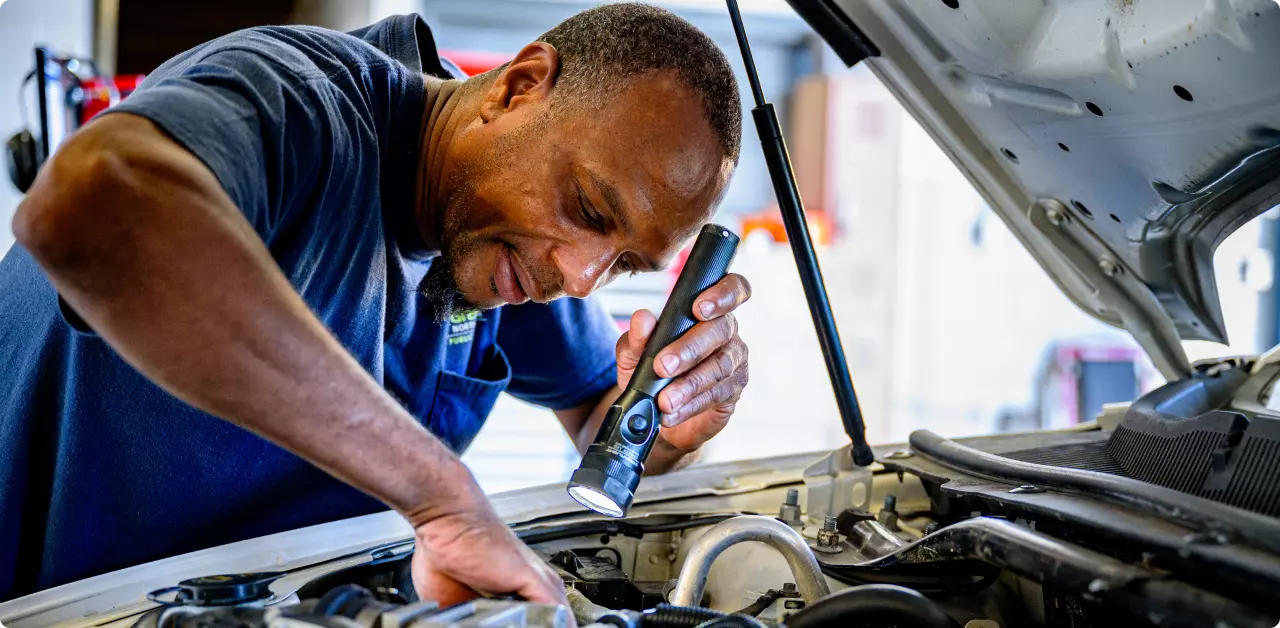All Categories
Featured
When Keeping Your Automobile, # Typical Errors to Stay Clear Of
Appropriate automobile maintenance is the foundation of guaranteeing your vehicle's efficiency, long life, and safety. Nevertheless, also one of the most diligent cars and truck proprietors can fall under behaviors or make blunders that damage their cars gradually. Below prevail maintenance errors you ought to avoid to keep your car in superb condition.
![]()
![]()
![]()
Verdict. Preserving your lorry does not need to be tough, yet avoiding these usual mistakes can make a huge distinction. By staying proactive, using the ideal parts and fluids, and consulting specialists for more complex jobs, you'll conserve cash on fixings and guarantee your auto stays safe and trusted for years to come. Regular care not only protects your financial investment but additionally enhances your total driving experience.
- Skipping Routine Upkeep. One of the most substantial mistakes is neglecting regular upkeep jobs such as oil modifications, tire rotations, and brake inspections. These jobs are vital to avoid damage, and skipping them can lead to larger, costlier problems. Follow the maintenance routine in your owner's manual to maintain your auto in top shape.

- Ignoring Liquid Levels. Your automobile relies upon various liquids, such as engine oil, coolant, transmission liquid, brake fluid, and windscreen washing machine fluid, to run appropriately. Stopping working to monitor these levels can cause mechanical issues, getting too hot, or perhaps brake failing. Make it a practice to examine these liquids on a regular basis and top them off as needed.
- Failing to remember to Change the Air Filter. The engine air filter avoids dust and particles from getting in the engine. A clogged filter minimizes air flow, causing lower fuel effectiveness and minimized engine efficiency. Changing the air filter is a simple and low-cost task, yet lots of cars and truck owners ignore it. Inspect your air filter during regular upkeep and replace it if it's used or filthy.
- Overlooking Tire Care. Tire upkeep is critical for both safety and security and efficiency. Driving with underinflated or overinflated tires can create uneven wear, decrease gas efficiency, and enhance the risk of a blowout. Failing to rotate tires frequently leads to uneven walk wear. Utilize a tire stress gauge to examine your tires month-to-month and comply with the recommended rotation schedule in your guidebook.

- Using Incorrect Parts or Liquids. Modern cars are designed with certain needs for liquids and parts. Utilizing the wrong kind of oil, coolant, or replacement part can lead to inadequacy or also damages. Always consult your car's manual and purchase high-quality, manufacturer-recommended products.
- Overwhelming Your Car. Routinely straining your auto with hefty things can strain the suspension, brakes, and tires. This blunder is frequently forgotten but can bring about long-term damage. Know your vehicle's weight limitation and avoid surpassing it, specifically for extended durations.
- Disregarding Caution Signs. Your car provides indication when something is wrong, such as control panel caution lights, uncommon noises, or reduced efficiency. Disregarding these indications commonly leads to much more serious troubles. Address problems immediately by seeking advice from a trusted technician or running a diagnostic check to identify the trouble.
- Postponing Brake Upkeep. Brakes are one of one of the most essential security parts of your automobile. Postponing brake examinations or overlooking indications like squealing, grinding, or decreased responsiveness can endanger your safety. Have your brakes checked regularly and change brake pads or rotors when essential.
- Executing Do It Yourself Services Without Experience. While some maintenance jobs like examining liquids or replacing wiper blades can be done at home, much more complex repairs call for professional experience. Attempting to fix brakes, suspension elements, or electric systems without proper understanding can cause additional damages or safety and security dangers.

Verdict. Preserving your lorry does not need to be tough, yet avoiding these usual mistakes can make a huge distinction. By staying proactive, using the ideal parts and fluids, and consulting specialists for more complex jobs, you'll conserve cash on fixings and guarantee your auto stays safe and trusted for years to come. Regular care not only protects your financial investment but additionally enhances your total driving experience.
Latest Posts
Explore Cost-Effective Auto Repairs with Montclare’s Exclusive Service Specials
Published May 26, 25
1 min read
Find Out Save Big on Car Maintenance with Montclare Auto Repair’s Exclusive Deals
Published May 24, 25
1 min read
Reliable Overhead Door Solutions for Homes and Organizations
Published May 23, 25
1 min read
More
Latest Posts
Explore Cost-Effective Auto Repairs with Montclare’s Exclusive Service Specials
Published May 26, 25
1 min read
Find Out Save Big on Car Maintenance with Montclare Auto Repair’s Exclusive Deals
Published May 24, 25
1 min read
Reliable Overhead Door Solutions for Homes and Organizations
Published May 23, 25
1 min read